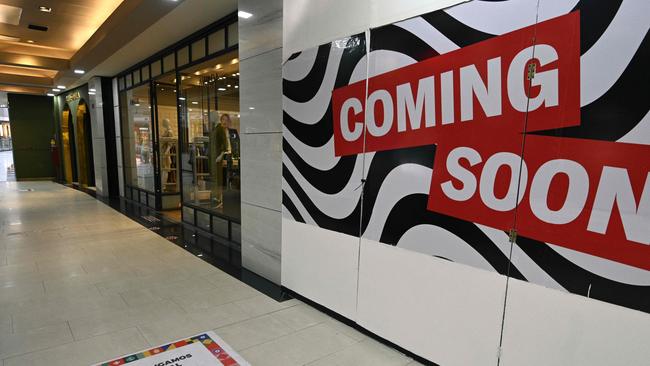Hiring spree kicks off with hunting season in the domestic investment banking industry


The new firm’s hiring spree is generating waves in the industry, and it’s likely to continue for months. Rivals are scrambling to retain staff, not only to protect against Barrenjoey’s overtures but also because UBS is selectively in the market restocking.
“They (Barrenjoey) have created chaos in the industry,” one investment banking chief told this columnist on the basis of anonymity. Barrenjoey, which counts several UBS alumni among its key people, is said to be targeting to have its equities trading desk up and running early next year.
That is despite former UBS heavy hitters including George Kanaan not starting for several months after that.
Two relevant Barrenjoey regulatory licences are said to have conditional approval and are progressed. The new firm also has hired staff from as many as 15 investment and retail banks, even though UBS staff have been a particular focus.
The noise around Barrenjoey is linked to the big names involved in the firm, including David Gonski, who has been lined up as independent chairman.
Former UBS banker Guy Fowler is executive chairman and former Challenger boss Brian Benari is chief executive.
Former UBS Australia boss Matthew Grounds is preparing to join next year, and former Deutsche Bank Australia chief executive Michael Ormaechea can’t be ruled out as a late starter even though he is among individuals fighting the competition regulator’s cartel charges against them and their bank employers.
Last year it was New York’s Jefferies raid on local staff at CLSA that caused ripples. This year it’s Barrenjoey and New Zealand’s Jarden.
Barrenjoey had an implied valuation of almost $400m at the time of launch and has combined capital backing from Magellan and Barclays of $200m, giving the firm firepower. If history is any guide, though, it will be a tough slog to get the operations and compliance running smoothly and clients across the line.
The structure sees Magellan take a 40 per cent economic ownership interest and a 4.99 per cent voting interest in Barrenjoey. Co-investor Barclays will have a 9.99 per cent economic interest and 4.99 per cent voting interest.
At the time of the launch, Barrenjoey had 60 people working to put the firm’s infrastructure in place. Recent hiring raids have likely increased that number by 20, and it’s early days.
A senior banker said the Barrenjoey moves reflected the increased difficulties and frustration of working for global investment banks, including seeking offshore deal and risk approvals, which can eat up a lot of time.
One thing is clear, it’s still a difficult environment for mergers and acquisitions. In a market the size of Australia, which is trying to forge a recovery from the COVID-19 economic turmoil, next year doesn’t represent a fee bonanza. Across a five-year time horizon, some of the firms seeking inroads may not win enough business and revenue to sustain their operations.
Remember Malaysia’s CIMB bought Royal Bank of Scotland’s local operations in 2012; Nomura made a big push into Australia around a similar time. CIMB has since retreated and Nomura has markedly reduced its local operations. Barclays had pulled the pin on Australia four years ago and is re-emerging through its exposure to Barrenjoey. More recently, Deutsche markedly shrank its Australian operations.
Other boutique advice-only deal firms have come and gone in the past decade, shutting up shop or merging. Those include the likes of BKK Partners, which counted former federal treasurer Peter Costello among its senior ranks, O’Sullivan Partners and Fort Street.
To be fair, there are a few long-term fixtures in the boutique side of the market, including the Simon Mordant-Ron Malek led Luminis Partners.
Barrenjoey has the capital and big names, but the real test comes next year. Its key people also include former local Deutsche chief financial officer John Cincotta, ex-UBS investment banker Matt Hanning and former UBS equities chief Chris Williams. Ex-Barclays country head and former Telstra executive Cynthia Whelan will be a senior adviser and BHP chairman Ken MacKenzie is a senior strategy partner.
The investment banking market definitely has its ebbs and flows and the staff disruption won’t abate any time soon.
Cartel action
The Australian Competition & Consumer Commission’s cartel action against three banks and six individuals is headed for case conferences in coming weeks after ongoing delays.
The case conferences have to occur by late next month, after the presiding court knocked back a prosecution push to extend the deadline to December 15.
The ACCC launched the case in 2018 and excluded JPMorgan from the action by granting it immunity for co-operation. The matter relates to an ANZ capital raising and how the banks managed a shortfall of shares that weren’t taken up by investors.
The action involves Citigroup’s former Australia chief executive Stephen Roberts, Citi bankers John McLean and Itay Tuchman, Deutsche’s Ormaechea and former equity capital markets boss Michael Richardson, and ANZ executive Rick Moscati. The case is being watched by the sector, even though lawyers have since put additional clauses in capital raising and underwriting agreements to ward against running into regulatory and legal issues.



It’s hunting season in the domestic investment banking industry. While this market is constantly labelled overbanked, a frenzied reaction to the arrival of Magellan Financial-backed Barrenjoey is taking place.